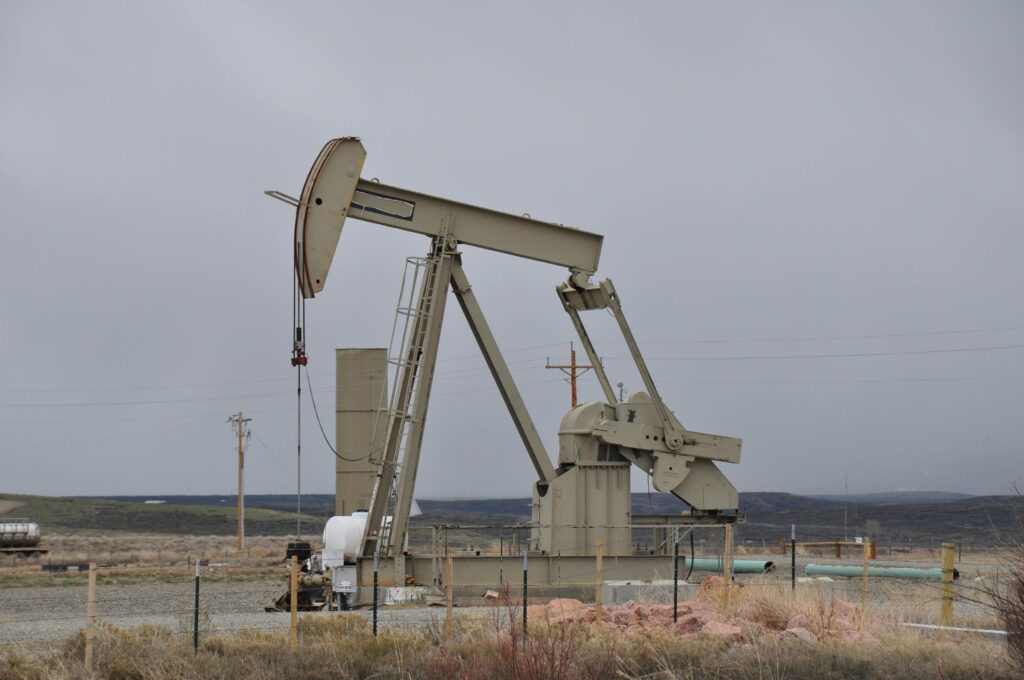A Landmark Deal in a Shifting Energy Landscape
In a major boost to North Africa’s energy ambitions, Algeria’s state-owned oil and gas company, Sonatrach, has entered into a $5.4 billion strategic partnership with Saudi Arabia’s Midad Energy. The agreement, which covers oil and gas exploration and development in the Illizi Basin in southeastern Algeria, extends over 30 years, with an optional 10-year extension and a seven-year exploration phase.
This partnership marks one of the largest Saudi investments in Algeria’s energy sector, signaling not only deeper economic collaboration between the two nations but also a regional shift toward intra-Arab energy integration. As both countries navigate the global transition toward diversified energy systems, the deal underscores a pragmatic understanding that hydrocarbons will continue to underpin national growth and geopolitical influence for decades to come.
The Illizi Basin: Algeria’s Next Frontier for Hydrocarbon Development
Stretching across a vast expanse of desert terrain, the Illizi Basin holds significant untapped reserves of oil and natural gas. Historically underexplored due to its remote location and logistical hurdles, the basin is now emerging as a priority for Algeria’s upstream expansion strategy. The basin’s geological potential rich in light crude and condensate positions it as a crucial asset in Sonatrach’s long-term vision to enhance both domestic energy supply and export capacity.
Under the new partnership, Midad Energy will bring advanced seismic imaging, drilling technologies, and capital expertise, while Sonatrach will leverage its deep local experience and established infrastructure networks. The seven-year exploration phase will focus on reservoir mapping, well appraisal, and the deployment of digital modeling systems to optimize resource identification. If successful, the project could add several hundred thousand barrels per day to Algeria’s national production by the early 2030s.
Strategic and Diplomatic Significance: Beyond Energy Cooperation
The Sonatrach–Midad Energy partnership is not merely an industrial collaboration; it reflects a broader strategic alignment between Algiers and Riyadh. Both nations share complementary objectives Algeria seeks to revitalize its hydrocarbon sector and attract foreign capital, while Saudi Arabia aims to extend its regional investment footprint under Vision 2030.
This cooperation strengthens Arab economic solidarity at a time when many regional economies are seeking independence from Western financing and energy intermediation. By fostering direct energy linkages between North Africa and the Gulf, the agreement could pave the way for future collaborations in petrochemical manufacturing, refining, renewable projects, and cross-border infrastructure.

Economic Ripple Effects: Capital, Jobs, and Industrial Growth
The $5.4 billion inflow will reverberate across Algeria’s economy in multiple dimensions. Direct investments will stimulate local job creation, particularly in engineering, logistics, construction, and energy services. The development of field facilities, storage terminals, and export infrastructure will further enhance the industrial base of southern Algeria, historically one of the country’s less developed regions.
The deal will also generate multiplier effects by stimulating auxiliary sectors such as transportation, manufacturing, telecommunications, and environmental monitoring. According to projections from Algeria’s Energy Ministry, the partnership could contribute more than $15 billion in cumulative GDP impact over its lifespan, including local subcontracting and indirect supply chain participation.
Beyond economics, the project symbolizes a transfer of technology and know-how. Saudi energy companies, well-versed in upstream digitalization and automation, are expected to introduce AI-driven reservoir management tools, predictive maintenance systems, and high-efficiency drilling equipment ushering in a new technological era for Algeria’s petroleum industry.
Regulatory and Governance Dynamics: Balancing Reform with Control
Algeria’s decision to invite Gulf capital reflects a shift in its energy governance philosophy. For decades, Sonatrach maintained a conservative approach toward foreign participation, prioritizing national control over partnerships. However, global competition for investment has prompted the government to modernize legal frameworks, reduce bureaucratic bottlenecks, and introduce clearer fiscal terms for foreign operators.
The new Hydrocarbons Law of 2019, further refined in 2023, introduced tax incentives, flexible production-sharing models, and enhanced protections for investors all of which made deals like the Sonatrach–Midad partnership feasible. Nonetheless, the challenge remains: maintaining sovereignty over national resources while ensuring sufficient returns to attract foreign capital.
Environmental and Sustainability Dimensions
While the Illizi Basin project will strengthen Algeria’s energy capacity, it also raises environmental considerations that must be managed responsibly. Large-scale drilling in desert ecosystems can disrupt fragile habitats, impact groundwater reserves, and increase carbon emissions. Both Sonatrach and Midad Energy have publicly stated their commitment to environmental stewardship and emissions control, with measures such as gas reinjection, water recycling, and flare reduction being integrated into project planning.
Moreover, this partnership comes at a time when carbon-conscious investment is gaining traction. Global investors and financial institutions are increasingly evaluating projects through an ESG (Environmental, Social, and Governance) lens. To maintain credibility and secure future financing, Algeria must demonstrate transparent environmental monitoring and adherence to international sustainability standards.
Geopolitical Context: North Africa’s Energy Resurgence
The Algeria–Saudi deal arrives amid a wave of renewed global interest in North Africa’s hydrocarbon potential. European nations, seeking alternatives to Russian gas, are turning toward Algeria, Libya, and Egypt for reliable supply routes. As a result, Algeria’s positioning as a Mediterranean energy hub is becoming increasingly strategic.
Saudi Arabia’s entry into Algerian exploration aligns with its ambitions to strengthen influence across the MENA energy corridor, linking Gulf financial power with North African production capabilities. This collaboration mirrors similar initiatives, such as the UAE’s ADNOC investments in Egypt and Morocco, and QatarEnergy’s joint ventures in Libya and Sudan. Collectively, these moves point toward a pan-Arab energy integration strategy that could reshape regional trade flows and investment dynamics.
Technology and Innovation: Digital Energy Development
A key feature of this deal is its emphasis on technological innovation. Both companies plan to deploy next-generation exploration tools, including 3D seismic imaging, AI-assisted drilling, and remote monitoring systems to enhance operational efficiency. By digitizing upstream processes, Midad Energy and Sonatrach can reduce exploration costs, accelerate project timelines, and minimize environmental risk.
The partnership also includes capacity-building programs aimed at training Algerian engineers and technicians in data analytics, automation, and sustainable resource management. These initiatives reflect a growing recognition that future competitiveness in the energy sector will depend not only on reserves but also on digital and human capital.
Challenges Ahead: Execution, Volatility, and Policy Continuity
Despite the promise of the deal, several risks could affect its success. Exploration outcomes remain uncertain commercially viable reserves might fall short of expectations. Market volatility, including fluctuating oil prices and tightening global demand patterns, could impact project profitability.
Additionally, policy continuity will be critical. Algeria has faced frequent changes in energy leadership, which can delay decision-making and erode investor confidence. To secure the full benefits of this partnership, both sides must maintain consistent engagement, clear communication, and policy alignment throughout the multi-decade project timeline.
Regional and Global Outlook: Toward a Shared Energy Future
The Sonatrach–Midad Energy agreement embodies a broader shift in global energy geopolitics from Western dominance toward South–South partnerships driven by shared interests and mutual development goals. North Africa and the Gulf are increasingly recognizing that collaboration, not competition, will be key to preserving relevance in a carbon-constrained future.
By leveraging their combined strengths Algeria’s resource abundance and Saudi Arabia’s financial and technological prowess the two nations are crafting a new model of regional energy cooperation that could extend into renewables, hydrogen, and industrial manufacturing. In time, such alliances may evolve into a comprehensive Arab Energy Bloc, capable of shaping market trends and policy directions on a global scale.
A Defining Moment for MENA’s Energy Integration
The $5.4 billion Sonatrach–Midad Energy deal represents far more than a commercial transaction it is a symbol of confidence in the enduring importance of hydrocarbons to economic stability, industrial growth, and national strategy. It also underscores the emerging spirit of regional self-determination, where Arab nations increasingly invest in each other’s futures rather than relying on external partners.
If executed with transparency, sustainability, and efficiency, this project could mark the beginning of a new chapter in Algeria’s energy renaissance and Saudi Arabia’s global investment trajectory. More importantly, it sets the stage for a wider narrative: that the Middle East and North Africa, long seen as separate energy spheres, are now converging into a unified powerhouse capable of driving the next phase of global energy evolution.
Related Blogs : https://ciovisionaries.com/articles-press-release/







